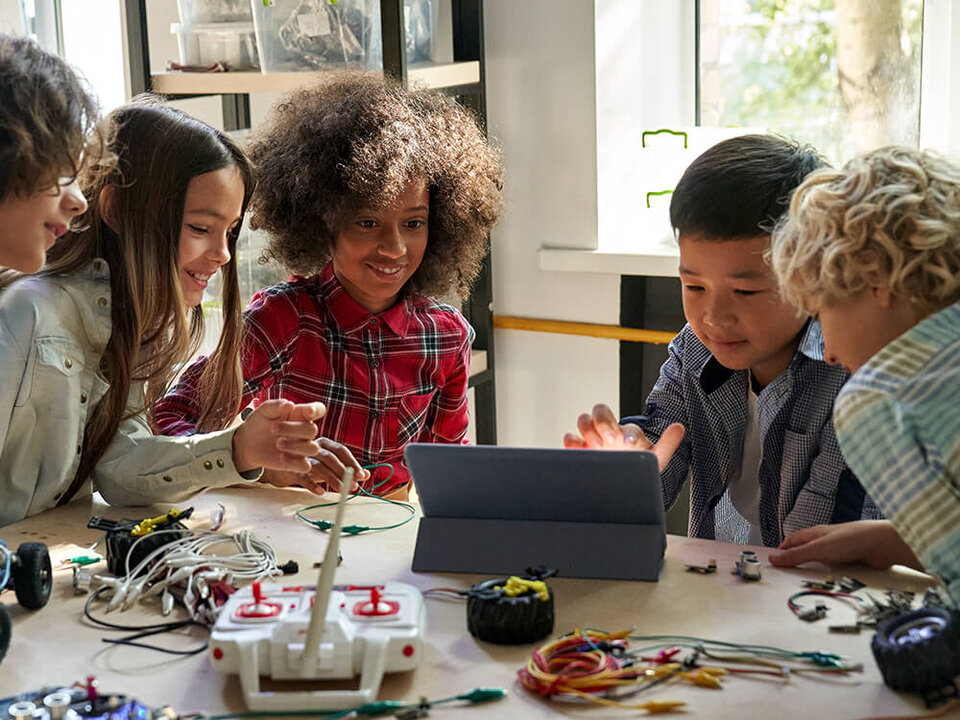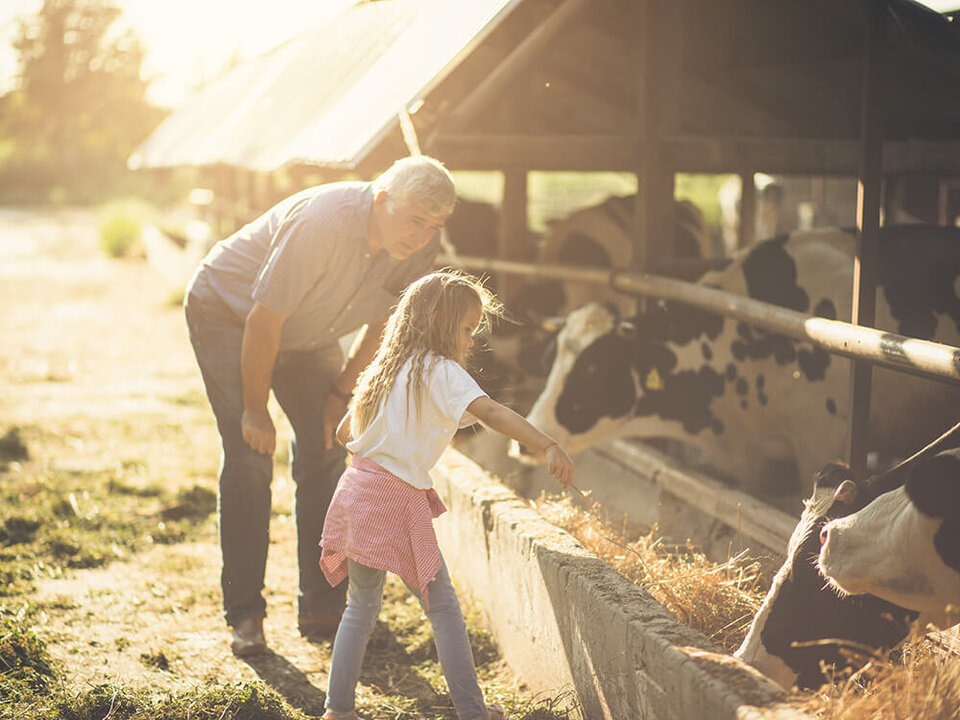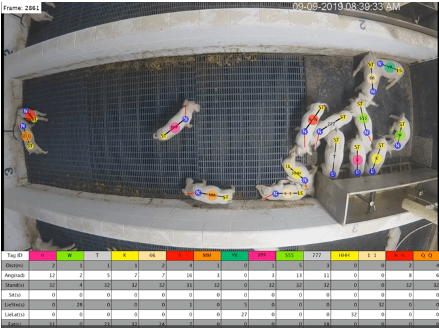Precision Agriculture is streamlining the World's Food Production with Technology
Precision Farming & Precision Livestock Management
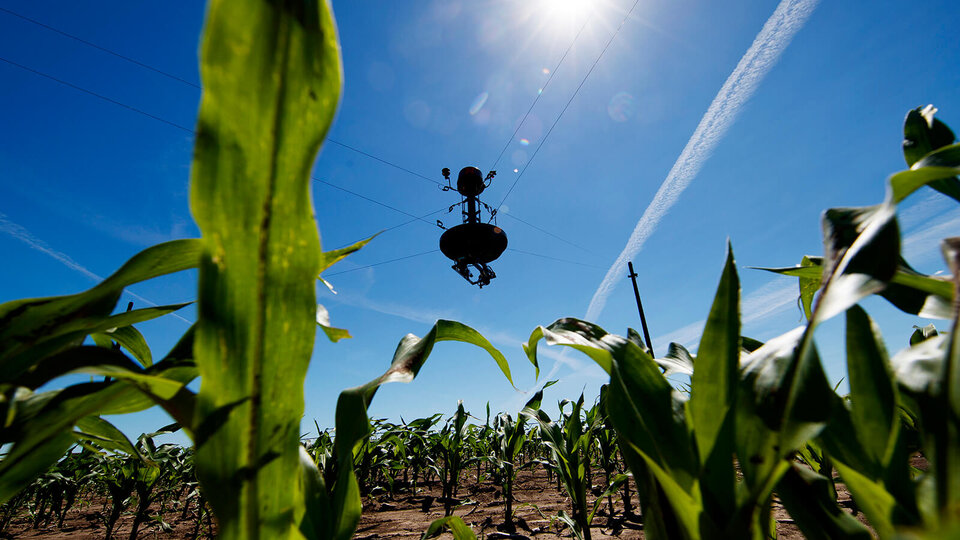
Precision Farming
Imagine you have a BIG garden with lots of different plants. We're talking like corn, carrots, tomatoes, potatoes, roses, lillies, all the good stuff that we love. Now remember, each type of plant needs their own things to grow well, like just the right amount of water, sunlight, and nutrients.
Precision farming allows us to be super-duper smart gardeners by taking advantage of all kinds of tools, gadgets, electronics, you name it, to get more information about each plant in our garden. So, instead of just giving ALL the plants the exact same amount of water and the same food, precision farming uses all that cool technology to help us know exactly what each plant needs on a particular day. Now you actually know if you need to give your favorite flower extra water if it's really thirsty, instead of just going off a hunch!
What do we mean by "technology"? So, imagine if your garden had little robots with fancy cameras or special plant food-detecting machines that could look at each and every plant (way faster and closer than you could look at every plant with your eyes!) and see if it needed more water, sunlight, or food. Then, they would help you give each plant just the right amount to help that plant grow as big and strong as possible. That's what precision farming does, but with really big fields of corn, wheat, soybean, and other crops instead of just a garden! It helps farmers take care of their plants in the best way possible. Cool, huh?
Here's a real-life story of a Nebraska kid that got way into Precision Farming!
Grain Weevil
One of Ben and Chad’s Grain Weevils hard at work, moving corn to level the pile inside the grain bin. Go, Grain Weevil, Go!
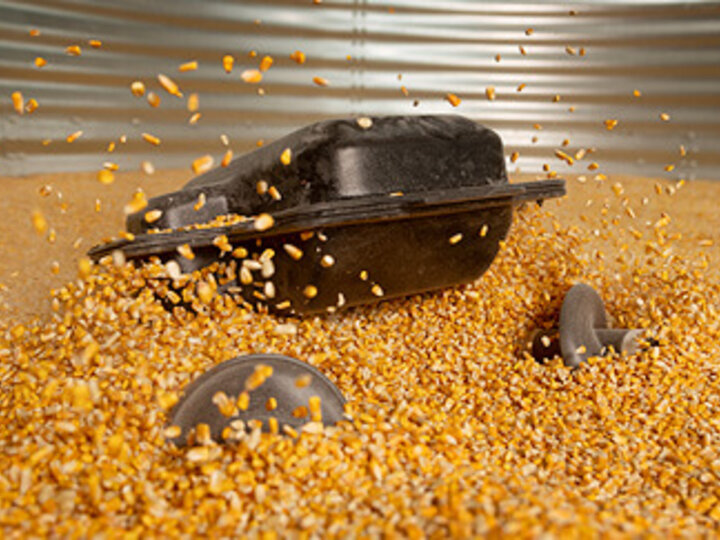
Growing up, Ben, was always very interested in robots. He even studied robotics in college at the University of Nebraska, when he wasn't busy cheering on the Huskers football team. Most people who knew Ben knew he had become a master builder of robots by the time he finished college. One day, his friend Zach came to Ben and his dad, Chad, and asked them to build a robot so that he and his kids would never have to get into grain bins. Why? Grain bins are not only hot and dirty, but they are very dangerous workplaces. Unfortunately, crawling inside these bins was part of farming at the time. There was no other way to correctly manage the stored grain inside. This meant that farmers were at constant risk of falling, getting stuck in the grain bin, and even long-term health problems from breathing in all the dust (known as Farmer's Lung).
They did the math: nearly 450,000 American farms have grain bins that must be checked over and over, meaning that farmers were being placed at risk over six million times a year! Ben and Chad got to work and created a self-moving robot called the Grain Weevil that does the dangerous job of entering grain bins for farmers! Now, farmers can stand safely outside and watch a screen while the Grain Weevil scans, takes pictures, and runs tests on the grain. It can even move grain around inside the bin if the piles get uneven!
That's technology at its best! That's Precision Farming!
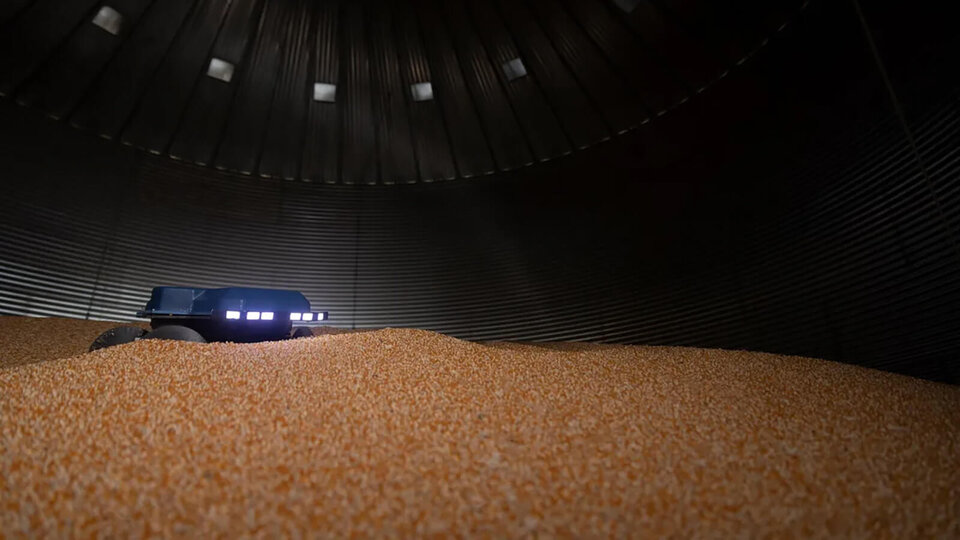
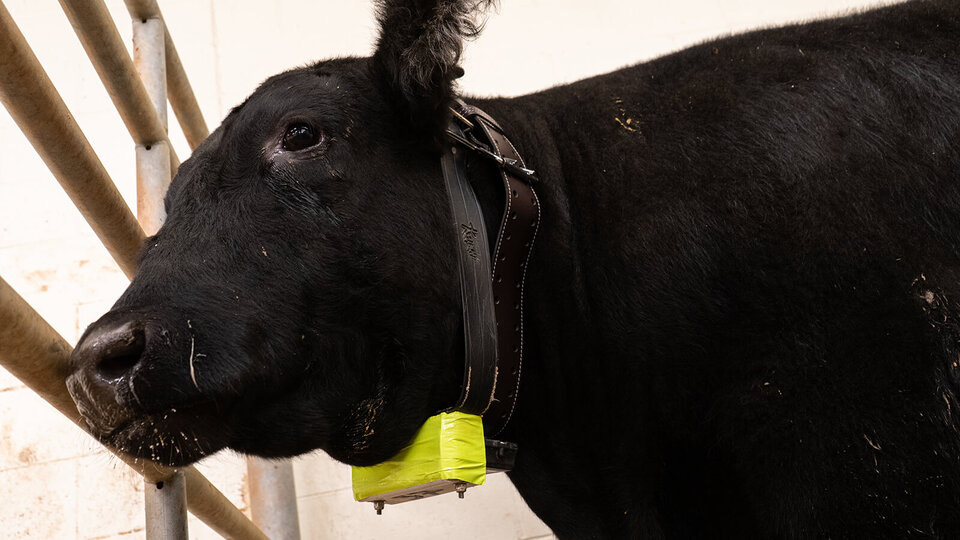
Precision Livestock Management
Can we use technology to help us raise food animals? Of course we can! Now, let's pretend we have a big farm with lots of animals like cows, pigs, and chickens. Precision Livestock Management (what some people shorten to PLM) is using technology to care for these animals just like Precision Farming does for crops. It's almost like having a cheat code or magical assistants to help us take care of each animal really well.
Want an example of this type of technology? Imagine a farm where each animal wears a special necklace, bracelet, or earring (but for animals, it might look more like a tag or a collar). These tags may not be as flashy as the jewelry we wear, but they can do amazing things! They may have electronic chips that can tell the farmer if the animal is feeling happy, if it's eating enough food, or if it needs to see the veterinarian (that's a doctor for animals).
So, if a cow or pig is feeling a little sick or needs more food, the technology can tell the farmer right away. It's almost like the animal is "talking" to the farmer without using words! The farmer can then help the cow feel better or give it the right food it needs.
Precision livestock management is all about using clever gadgets and tools to make sure each animal on the farm is healthy, happy, and productive.
Here's another real-life story of some Huskers doing Precision Livestock Management with...videogame equipment?!?
NUTrack Livestock Monitoring
NUtrack watching and assessing the behaviors of a pen full of baby pigs. It gives each pig a number/or letter nickname and reports on the time each one spends walking, laying down, eating, drinking, and many other things. It even tattles on pigs when they get into fights!
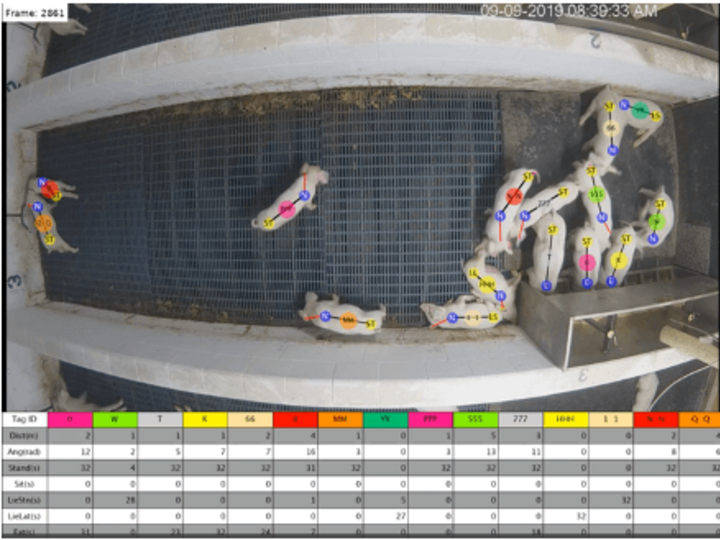
In 2015, a group of University of Nebraska researchers that included a mad-scientist computer engineer named Eric and two Texas-born animal science professors, Ty and Benny, were discussing how little we really know about farm animal behavior. They began to wonder what they could do to solve this problem. Eric knew a lot about technology, but not much about animals. Ty and Benny knew a lot about animals, but only a little about computers. However, they all three knew a lot about playing video games. They were big fans of the Xbox Connect gaming system, which used cameras pointed at the gamer to track their movements and "put them in the game." Could these cameras also be used to track the movements of... animals?
For the next few months, they worked together to create a computer program called the NUtrack Livestock Monitoring System that uses cameras similar to the one the video game used. Their new system takes videos of animals in their pens or fields to give information about their behavior. This information can then help livestock raisers and animal caretakers to better understand each animal's individual needs.
For example, sick animals don't walk as much as healthy ones. Like people, they just lay around when they don't feel good. NUtrack sees these changes in behavior and can alert the caretaker that the animal is having a health problem. This is really important in livestock animals like cows and sheep, because these animals will actually pretend they're not sick when humans are around! Really! Of course, this makes it hard to know how they are really feeling by just walking up to the pen and looking at the animal. Plus, cameras can watch for hours, days, and weeks without taking a break, unlike people. Cameras also don't blink, get distracted, or need bathroom breaks!
A recent test showed that when NUtrack watches pigs and reports their behavior, it's correct 96% of the time. That's an A+! With technology like NUtrack, animal caretakers get a more accurate idea of what the animals' daily activities are, which helps them make decisions to help each animal live its best-quality life.
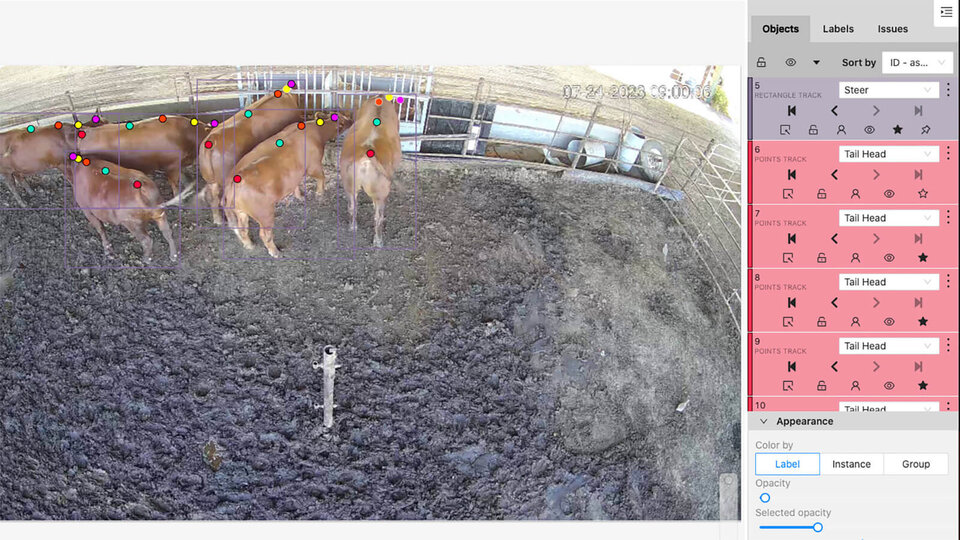
If you love animals or plants AND you love technology like drones, robots (and yes, even video games), your future career may be in Precision Agriculture!
You may be the mad-scientist computer engineer that develops a program that turns video game equipment into a machine that produces information about animal behavior. You might be the robot builder that develops a device to keep farmers and ranchers safer. You may also be a farmer or animal caretaker that needs a problem solved or the animal expert that works with computer or robotics experts to help them know how to build products that might best improve the lives of animals and their humans.

